Description
With attention to the Japanese occupation, the Korean War and its aftermath, The People’s Field reflects on the sounds, ideas and histories of the Korean peninsula. Of her selection, contest judge Jenny Yang Cropp writes, “Kwon’s manuscript contains a paradoxical experience of both movement and stillness, history and the eternal present. These poems, short and spare, carry the intensity of distillation but resist the epigrammatic as they show us a rich and complex landscape that asks for and earns reading after reading.”
“Unfolding spaciousness is imminent in Haesong Kwon’s poetry. He accomplishes that in abbreviated thought and language and in poignant illusive images of things and people once there and then swept away. In that invincible consciousness, impressions are in the stillness, stirring, arousing, solidifying, freezing for an instant and then dissolving or moving away. While the images are there, they stand timeless, even in mundane events such as ‘retirement,’ and they appear in ‘a sequence, always,’ closeup and in the distances: ‘a province,’ ‘a vista,’ ‘Asiana.’ To read The People’s Field is to open one’s self to Kwon’s ‘truce’ between ‘soldiers’ and a ‘song’ ‘hard to learn.'” –Anna Lee Walters
Haesong Kwon was born in Incheon, Korea. He is the author of the chapbook Many Have Fallen (Cutbank Books).


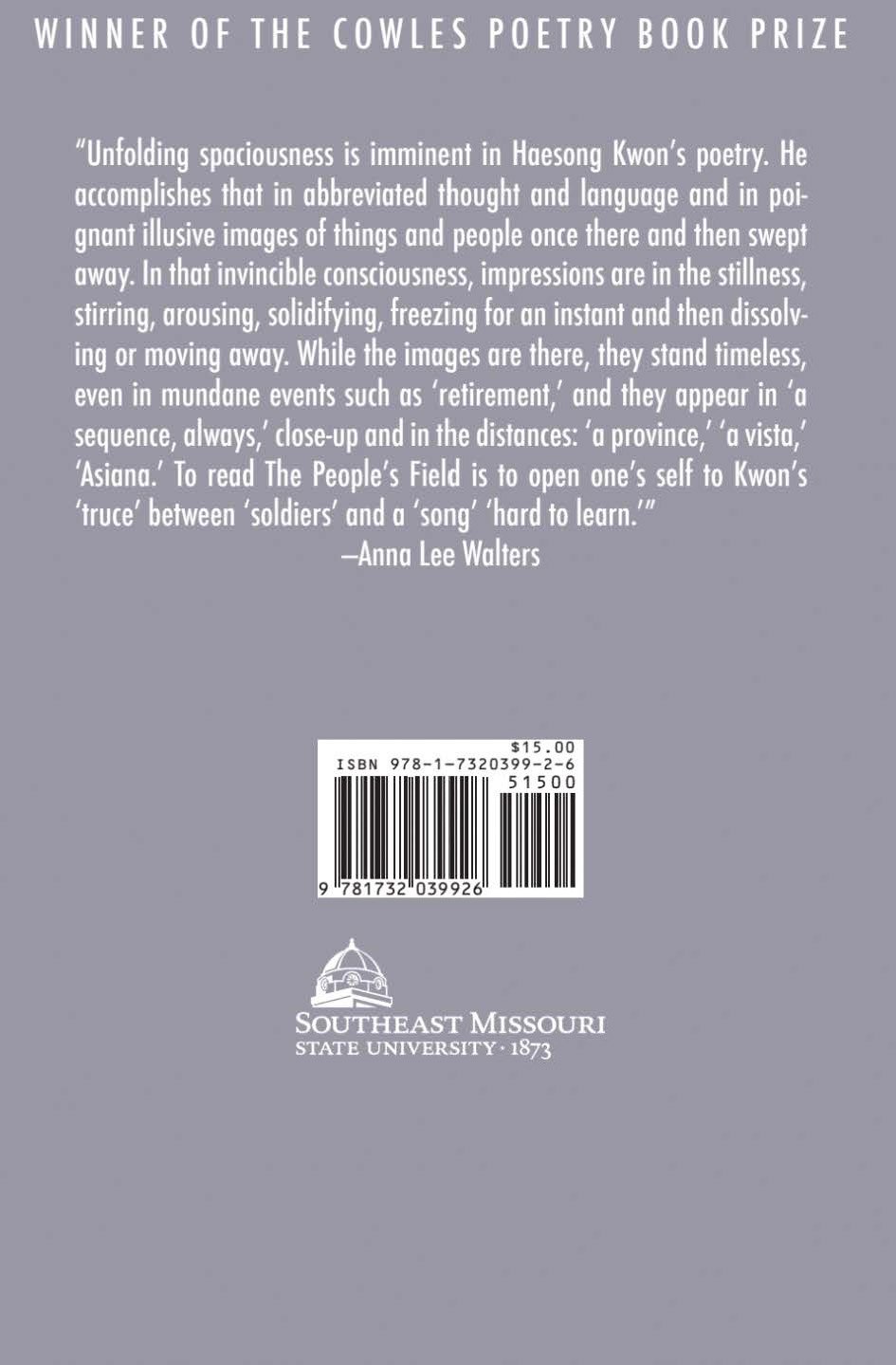
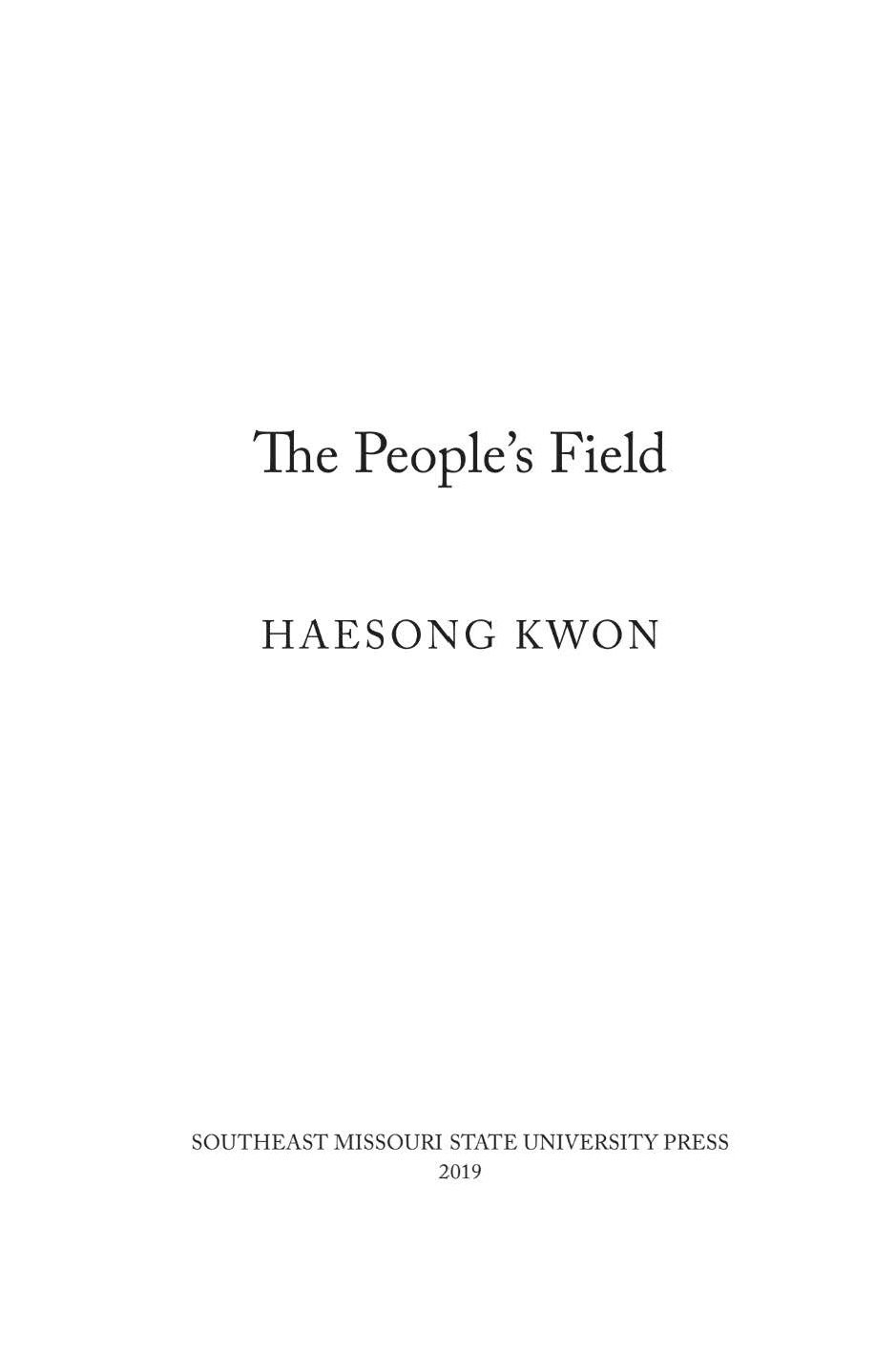
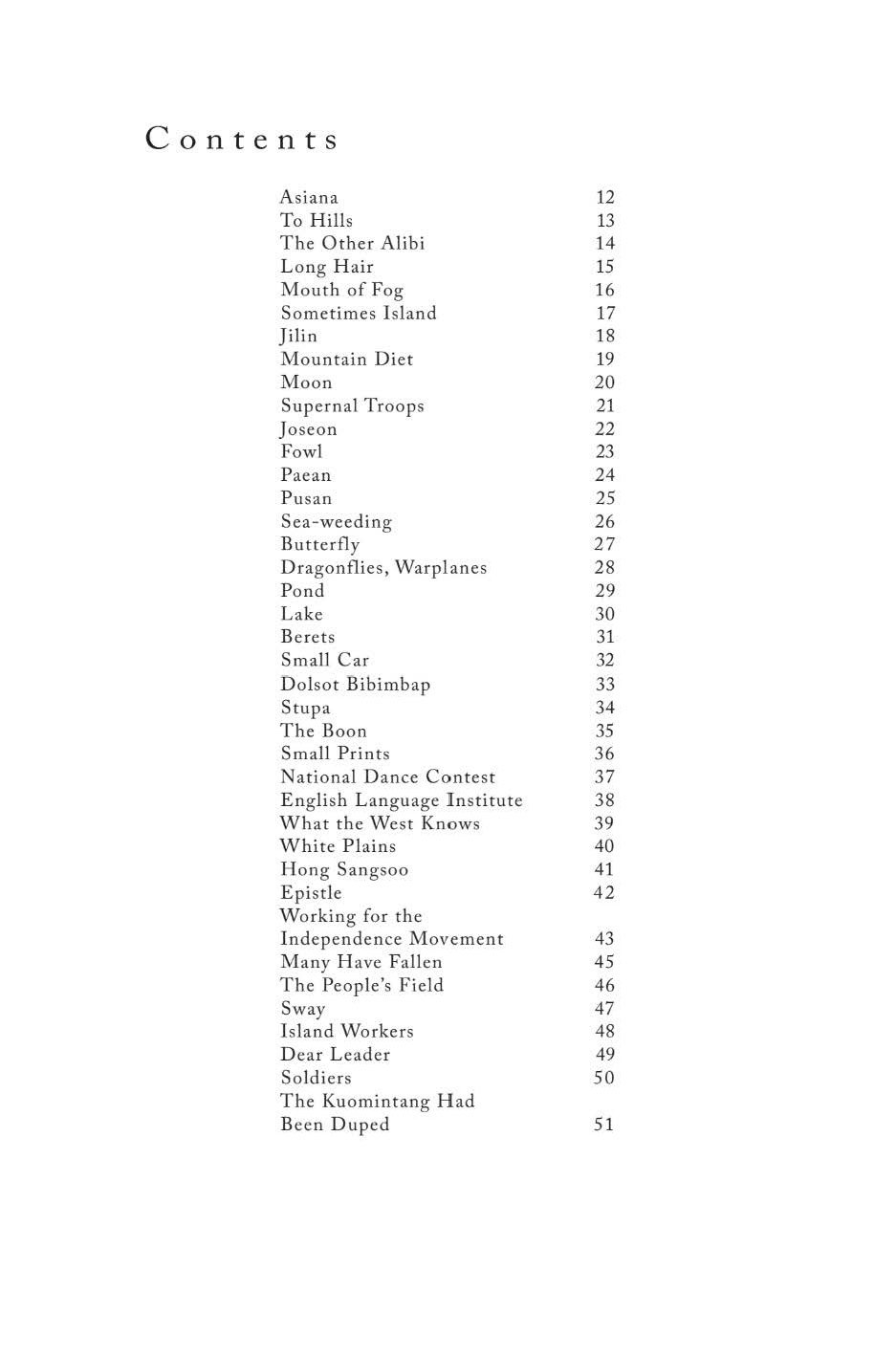
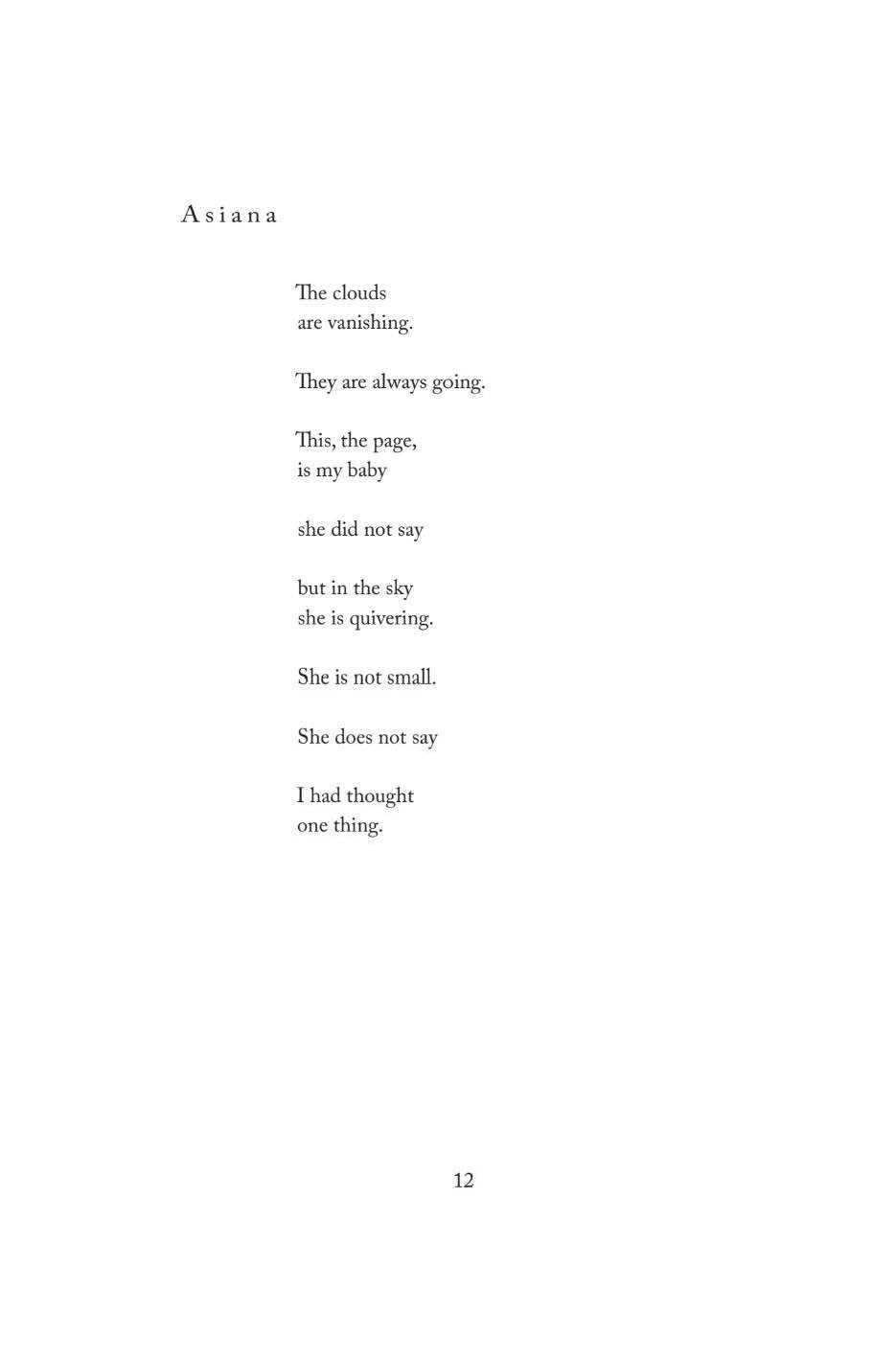
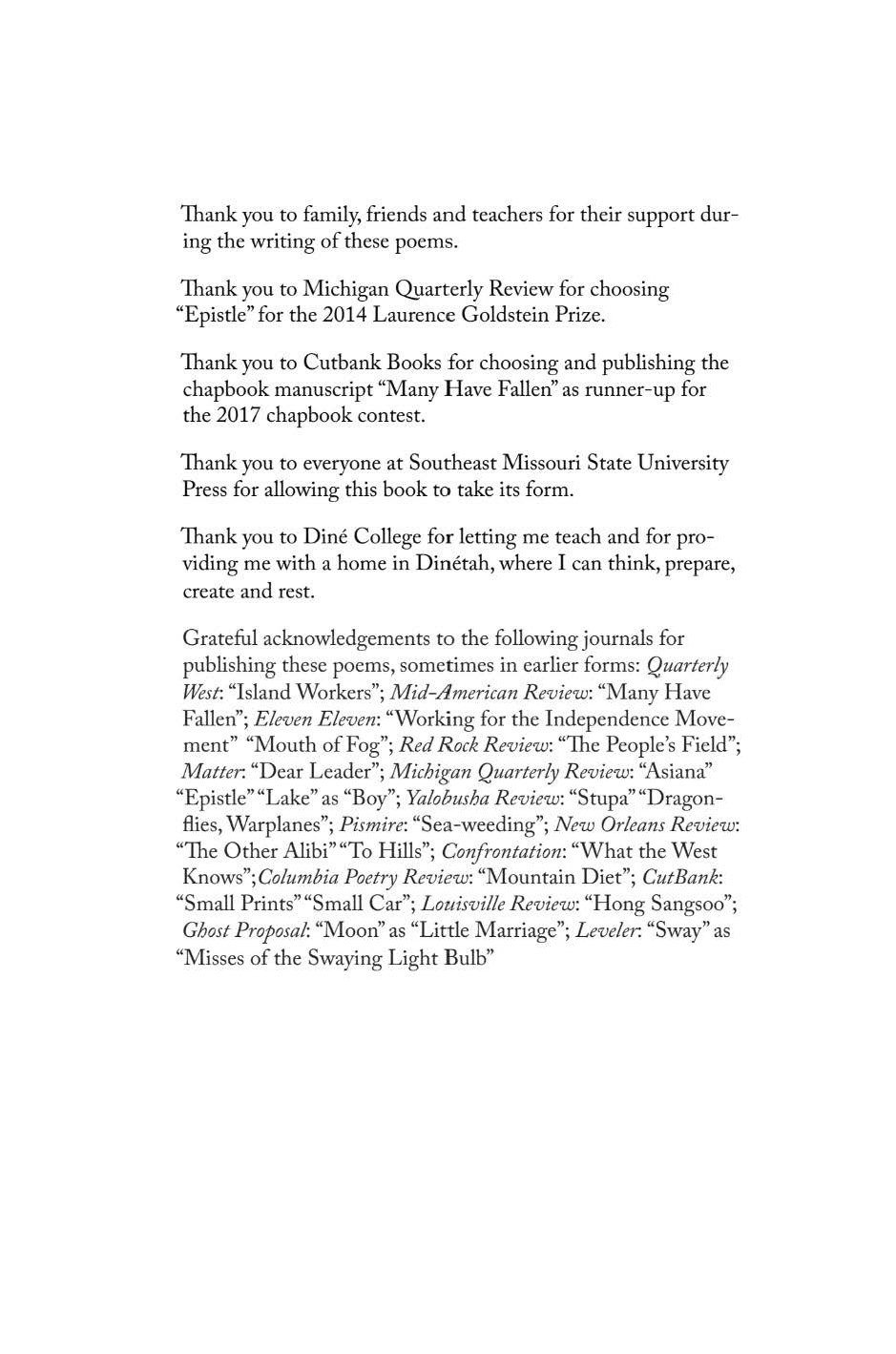
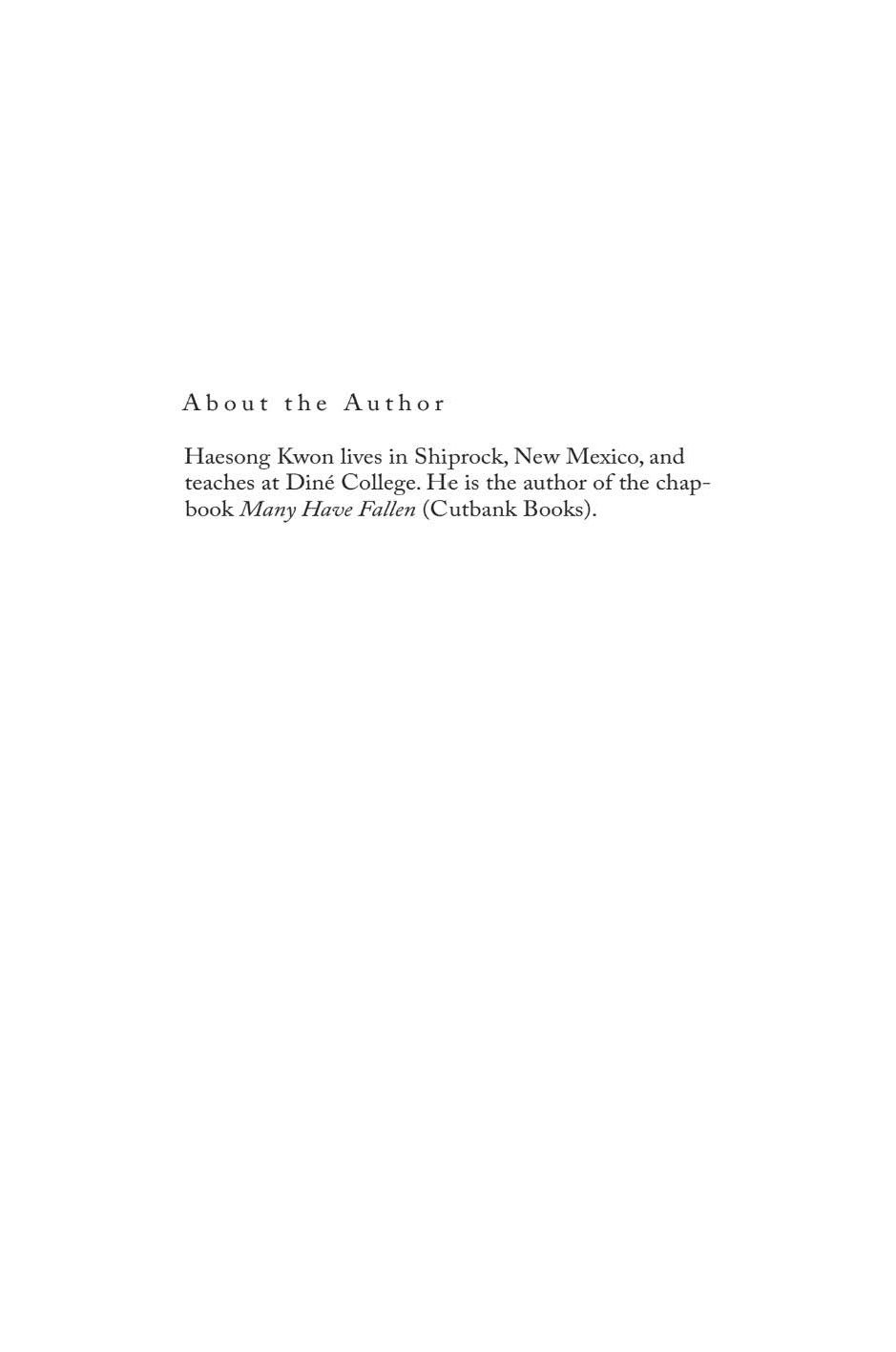
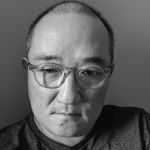
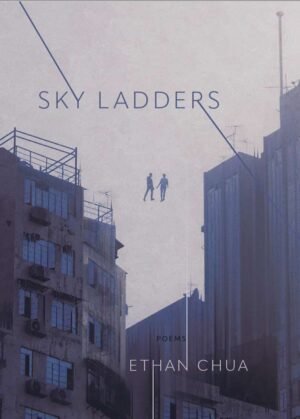
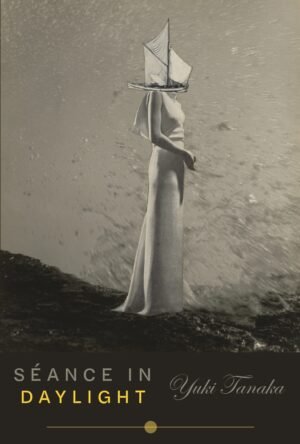
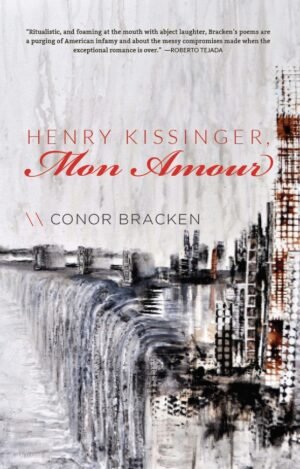
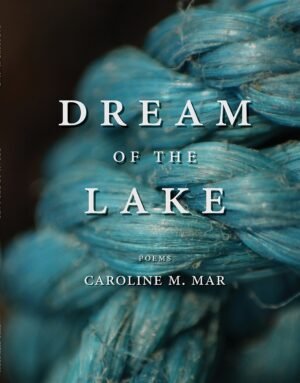


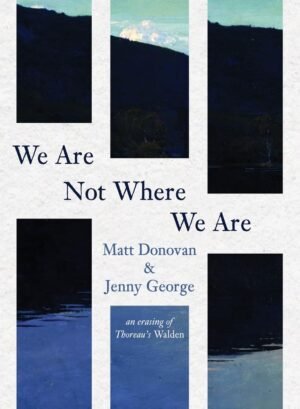
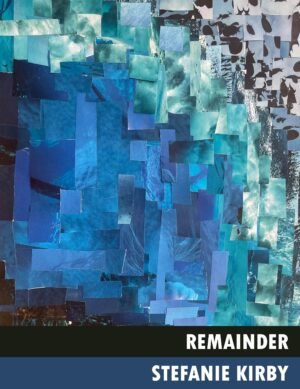
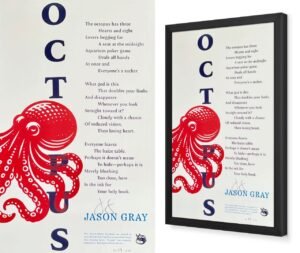
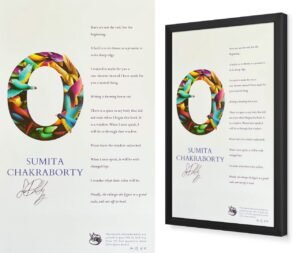
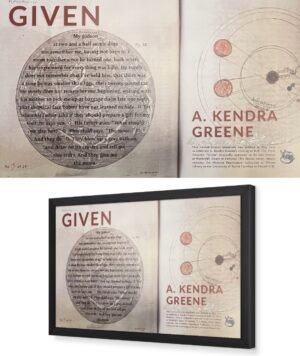



Reviews
There are no reviews yet.